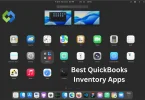Property managers now have tools that offer financial clarity and streamlined operations. Why should you care? This tech not only enhances efficiency but also improves decision-making processes.
Curious about these developments?
Read on as we explore the ways technology reshapes property management practices for today’s dynamic world.
Table of Contents
Table of Contents
Streamlining Operations with Property Management Software
Property management software simplifies complex tasks, making operations smoother and more efficient. In 2026, modern platforms powered by AI for real estate software do more than just track rent payments; they handle everything from maintenance requests to lease agreements.
Think of this software as a reliable assistant who never takes a break. It organizes schedules, sends automatic reminders for inspections, and even processes tenant applications seamlessly.
By digitizing documents and offering centralized access to data, managers save time previously lost in paperwork. Moreover, communication between tenants and landlords improves through instant messaging features within these systems.
This level of operational streamlining is particularly vital for short-term rental properties, where rapid guest turnover and constant communication demands a highly efficient system. Managing an Airbnb effectively requires not only robust software but also a dedicated team to handle everything from dynamic pricing to meticulous cleaning and guest support.
For property owners looking to maximize their investment without the daily hassle, professional oversight ensures seamless operations and optimal returns. In bustling markets like Florida, finding an expert airbnb manager tampa, fl, can transform a vacation rental into a truly passive income stream, leveraging technology to its fullest potential.
For real estate professionals in New York, enrolling in online real estate classes through NYREI can provide the skills needed to navigate both property management tools and local market dynamics effectively.
Financial Insights: The Role of Real Estate Investment Platforms
Real estate investment platforms provide essential financial insights, vital for successful property management. These tools not only track revenue and expenses but also forecast future financial scenarios, ensuring informed decisions.
Consider these platforms as strategic advisors in the digital world. They analyze market trends and help assess the profitability of potential investments with precision. For those managing multiple properties, this technology becomes indispensable.
Using specialized tools for budgeting and forecasting allows managers to view cash flow projections, plan budgets effectively, and align investment strategies seamlessly.
This convergence highlights how advanced software ensures transparency and accountability in real estate finance management today.
Harnessing Data Analytics to Guide Choices
Property managers are revolutionizing decision-making by using data analytics, gaining insights into market movements and tenant patterns. By interpreting data effectively, managers can optimize property performance.
Key benefits include:
● Tenant Insights: Analyzing rental patterns helps identify ideal pricing strategies and understand what amenities attract or retain tenants.
● Market Trends: Recognizing shifts in demand or regional preferences ensures properties stay competitive.
● Streamlining Operations: Analyzing data uncovers inefficiencies, prompting swift remedial measures that improve management workflows.
Additionally, predictive analytics anticipate maintenance needs before they escalate into costly repairs. This proactive approach reduces unexpected expenses while ensuring property upkeep remains optimal.
For instance, identifying potential electrical issues early can prevent significant hazards and costly damage down the line. Property managers must ensure that all electrical systems, from wiring to outlets, are regularly inspected and maintained to guarantee tenant safety and property value. When complex problems arise, relying on expert services for home electrical repair becomes essential to resolve issues efficiently and safely. Professional technicians can diagnose and fix everything from tripped breakers to faulty wiring, ensuring compliance with safety standards and minimizing disruption for residents.
Ultimately, integrating data-driven insights empowers property managers to make strategic decisions that align with current market dynamics confidently.
Improving Tenant Experience Through Technology
Technology significantly enhances the tenant experience, transforming how residents interact with property management. In 2026, tenants expect seamless digital interactions that simplify daily living.
Online portals allow easy rent payments and maintenance requests, removing traditional hassles of paperwork or phone calls. Instant communication channels within these platforms keep tenants informed about building updates or scheduled repairs effortlessly.
Intelligent home technology elevates ease by tailoring lighting, temperature regulation, and security frameworks to personal tastes automatically. Such amenities increase satisfaction and contribute positively to occupancy rates.
Moreover, virtual tours make apartment hunting more accessible for potential tenants who wish to view properties remotely. By embracing these technological advancements, property managers foster an environment where modern conveniences align with tenant needs effectively.
Automation Tools Reducing Administrative Workload
Automation tools revolutionize property management by minimizing tedious administrative tasks, allowing managers to focus on strategic priorities. Here’s how automation is making a difference:
● Streamlined Lease Administration: Automated platforms monitor lease timelines, dispatching prompt notifications to landlords and tenants regarding expirations and renewals.
● Proactive Maintenance Coordination: Advanced alerts for predictive maintenance guarantee timely repairs, curbing potential problems and boosting tenant contentment.
● Efficient Rent Transactions: The rent payment process is refined with automatic reminders and sophisticated tracking capabilities for seamless financial management.
Additionally, automation minimizes the risk of human error and maintains uniformity in all operational activities. This liberation from monotonous tasks empowers property managers to focus on elevating service standards and expanding their property collections.
This shift towards automation marks a significant leap in modernizing the property management industry today.
Reflecting on Technology’s Impact on Property Management
As we consider the changes in property management, technology clearly plays a vital role. It transforms operations, enhances tenant satisfaction, and streamlines administrative tasks.
By embracing these advancements, managers can deliver more efficient services while staying competitive. The digital age promises continuous innovation, shaping a future where tech-savvy practices lead to success in real estate management.














